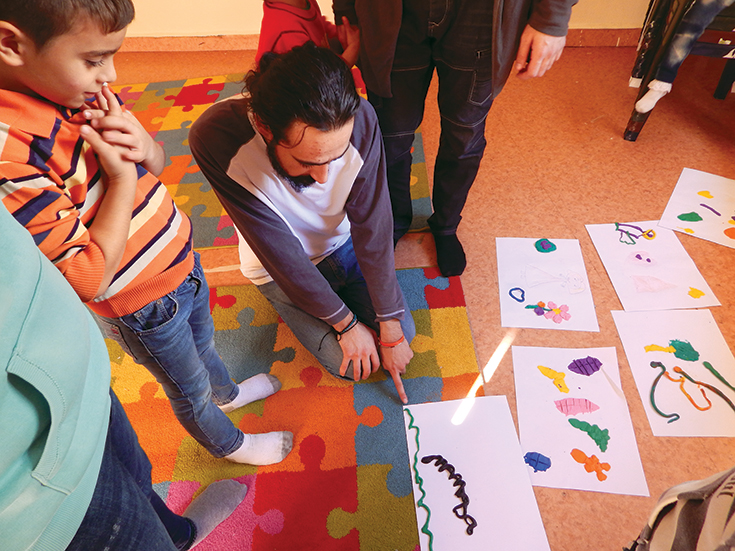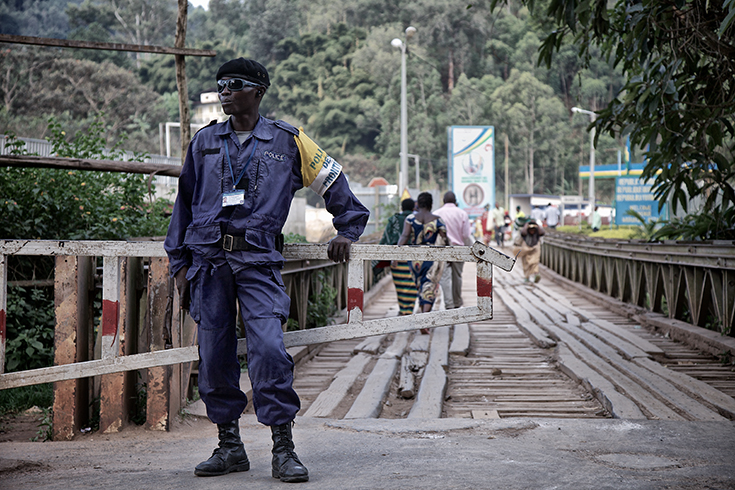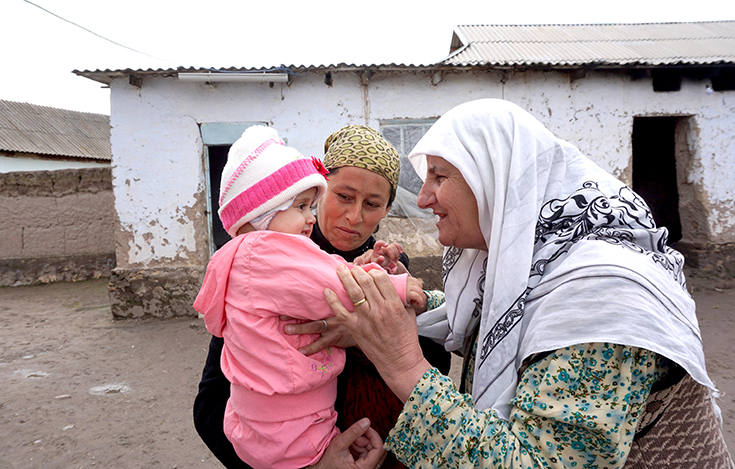On International Day of Peace, International Alert calls for doubled investment in peacebuilding
In a new report, the charity International Alert draws on extensive research and evidence-based case studies to highlight the positive economic and social benefits of proactive actions to build peace, and the huge financial costs of conflict. It makes a strong case for increased support for peacebuilding in an increasingly uncertain world, where more than one in five people’s lives are affected by conflict.

Integrating peacebuilding ideas and approaches into curricula, such as the skills to resolve conflicts without violence, the values of tolerance and respect for diversity, and the ability to critically analyse and question the world around oneself, give children a toolkit with which to go about building peace from the playground up. That is the idea behind International Alert’s peace education project, where the NGO works with its local partners in Lebanon, Syria and Turkey to provide Syrian children and young people with a safe space to process their feelings about the conflict, and build their resilience in the face of violence and displacement (Karlysheva/International Alert)
The call for increased investment comes after the Global Peace Index estimated total expenditure on peacebuilding at around $10 billion in 2016, just over half a per cent of the $1.72 trillion global military expenditure and just under one per cent of the annual $1.04 trillion global economic impact of war.
Harriet Lamb, CEO of International Alert, said: “The evidence shows that proactive peacebuilding works and now it needs to come out of the policy shadows. Peacebuilding prevents people’s suffering and death. It also makes economic sense – every $1 invested in peacebuilding reduces the costs of conflict by $16. Clearly, conflict costs, but peace pays. So on this International Day of Peace, we call for at least double the current amount to be invested on peacebuilding.”
Titled Redressing the Balance: why we need more peacebuilding in an increasingly uncertain world, the report calls for an expenditure of at least $27 per capita on peacebuilding in all conflict affected countries. This is at least double the current rate of spending on average – and has also been recommended by the Institute for Economic and Peace.

The signing of a bilateral agreement on cross-border trade between Rwanda and the Democratic Republic of Congo (DRC) in Rubavu in 2016and the launch of the Simplified Trade Regime (STR) between the countries is a vital step towards peace and economic development in the region. Clara Magariño Manero, Project Manager at International Alert in DRC said: “We have been calling for such a commitment to regional cross-border trade for many years, and implementation of the STR was a key recommendation of participants at the regional conference on cross-border trade which International Alert and the World Bank held in Bukavu, DRC, in March of this year. Implementation of the STR is a historic step for improving the economic conditions of traders and forging closer ties between them. We warmly welcome this positive new dynamic between the two countries.” Click here for more details (Carol Allen-Storey/International Alert)
Well-evidenced success stories from peacebuilders around the world support the case for increased focus on peacebuilding: initiatives such as training provided to Muslim and Christian community leaders in the Central African Republic, improved political collaboration across sectarian lines in Lebanon, mediating land conflicts in the Philippines, community-friendly policing in Afghanistan, mobile courts in eastern DRC and psychological support and safe space provided to young Syrians are among the examples that have demonstrably contributed to reconciliation or resilience.

International Alert organises Living with Dignity workshops in Tajikistan, bringing together wives, husbands, mothers-in-law and other family members with their peers to discuss and improve the role that wives and daughters play in the family. The groups then meet collectively to share their ideas and opinions as a community. By improving gender relations in this way, the NGO hopes to reduce the levels of violence perpetrated against women and girls in Tajikistan, as sexual and domestic violence stem from the same devaluation and discrimination of women. Acknowledging the role that wider family dynamics and social norms play in perpetuating this problem is crucial. Click here for more details (International Alert)
The report highlights qualities shared by successful peace initiatives and recommends them for future interventions: They are locally-led and owned; they work at local, regional, national and international levels; they address the root causes of violence and involve inclusive, engaging different age, gender, class and other identity groups; they incorporate institutional perspectives at different levels; and they are sustained over many years. These factors, the report shows, have successfully contributed to a critical mass of energy for peace in Northern Ireland, Nepal and South Africa.
The report calls on the international community to deliver four major shifts:
Make peacebuilding a central component of all international policies aimed at conflict-affected countries;
Build the capacity of international organisations and donor governments
to plan, implement and monitor peacebuilding;
Take immediate steps to implement improved peacebuilding policies and practices in some of the most troubled parts of the world; and
Stimulate more public discussion about the need for greater emphasis on and investment in peacebuilding, nationally and internationally.
Redressing the Balance: why we need more peacebuilding in an increasingly uncertain world is published today (September 21). It is available to download here